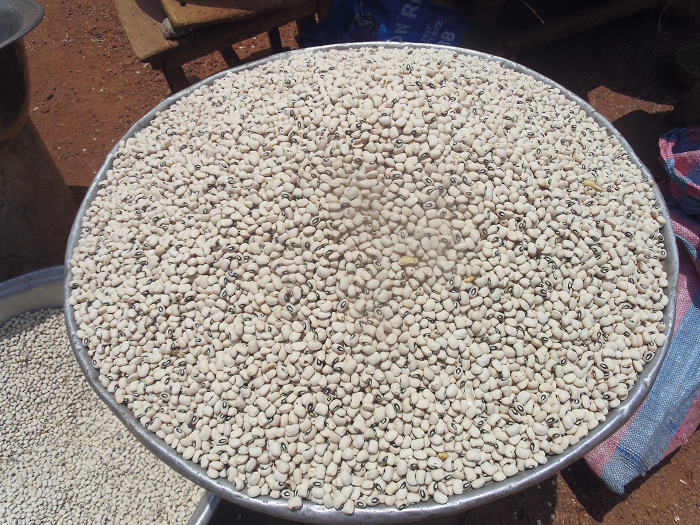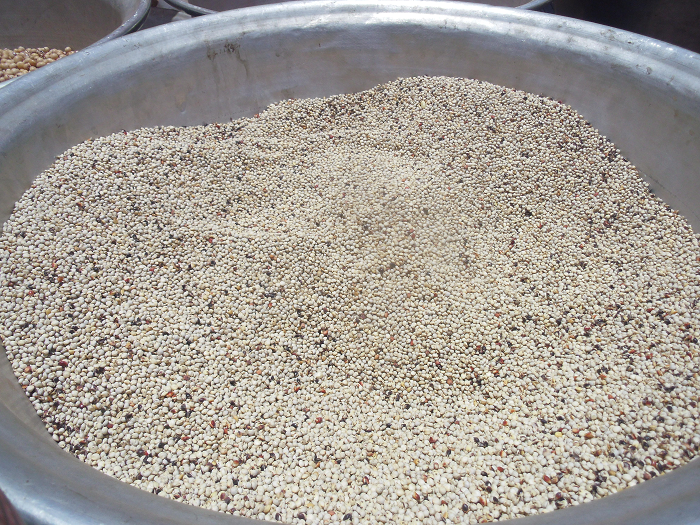
The place of seeds in food security: Can Ghana achieve SDG2?
It does not look like we have much of a choice as a nation on the need to self-secure our needs, among them as basic as food sufficiency.
Advertisement
The debate on Genetically Modified Organisms (GMOs) is not going to sleep anytime soon. This is because scientists, both for and against the use of GMO foods, have taken entrenched positions on their stance. Neither of the two groups is prepared to throw in the towel.
While each of the two opposing groups has advanced reasons why their position must be accepted by all, one issue bridges the two divides – how do we ensure food security and prevent hunger in the world?
The problem of ensuring food security in the world has become a topical issue in global politics. Many nations and governments are finding innovative ways to ensure that they either have enough food to feed their populations or have enough food to feed themselves and also for export.
The issue has even become more popular, following the
Crops are no longer yielding as they used to. The weather conditions are becoming hostile to food crop production. Soil nutrients are depleting and the global population increasing. There is
It is estimated that about 800 million people globally currently face hunger. The global population has also been estimated to increase from the present 7.3 billion to 9.5 billion by 2050.
A research conducted by Send-Ghana,
The report further indicated that in 2009, about 1.2 million Ghanaians, representing five per cent of the country’s population, were classified as food insecure and two million people, representing eight per cent, classified as being vulnerable to becoming food insecure.
According to information sourced from the website of Food and Agriculture Organisation (FAO) as of September 18, 2017, "to feed another two billion people in 2050, food production will need to increase by 60
SDGs
For instance, when the world leaders met in New York in September 2015 to develop the 17 Sustainable Development Goals (SDGs) with 169 targets, which are to be achieved by 2030, the issue of food security occupied a central place on that global agenda.
Goal Two (2) of the SDGs is to "End hunger, achieve food security and improved nutrition, and promote sustainable agriculture".
Some beans seeds being dried for planting
One of the targets under the SDG 2 is to maintain genetic diversity of seeds, cultivated plants through soundly managed and diversified seed and plant banks at the national, regional and international levels by 2020.
Role of seeds
Seeds play a critical role in ensuring food security. Whether farmers’ harvest will be a bumper or not depends largely on the type of seeds they use for planting.
Quality seeds, thus, is the basic critical input upon which several other farm inputs (such as fertilizer application, soil fertility, and weeding etc) will depend on for their full effectiveness.
Many agriculturists have opined that one of the key ways to increase food yields is for farmers to use quality and improved seeds for planting. Seeds in farming are like the thumb without which a noose cannot be made.
Growing up in the village with my parents who are both farmers, I saw them using seeds from their previous cropping year to plant in a new season. As a child, I thought that was the right practice. But now the practice appears to have outlived its importance, considering Climate Change.
For instance, a piece of land where my parents used to harvest about five bags of maize when planted with their own seeds increased to about 8.5 bags of maize when they started buying seeds called "Obaatanpa" from the district agriculture department.
The side of farmers
On Saturday, September 30, 2017, I found myself at Ekumfi Bogyano in the Central Region and capitalized on the opportunity to familiarise myself with the type of seeds farmers in the area use.
Opanyin Kobena Arhinful is a peasant farmer of several food crops, including maize, pepper, tomatoes and
He told me that consistently he had been experiencing a decrease in his harvest over the past years.
I used to harvest about nine bags of maize from "one pole farm" (about an acre) land, but now I hardly get five, he lamented.
He added that the germination
Opanyin Arhinful explained that he normally sowed three maize seeds in a hole but in most cases, only one or two would germinate, adding that sometimes not even a single seed sees light.
If you are lucky, then two of the seeds will germinate. The germination rate has gone down and the crops

Some guinea corn seeds being dried for planting
Auntie Ama Etwey is another maize farmer I met at Ekumfi Bogyano. She is 54 years and has spent half of her life in the community, farming.
She admitted to having observed
We are only wasting our energies on the farms. We don't get anything because the crops are yielding poor fruits, she said.
Auntie Etwey explained that when she tried a seed she bought from a seed shop in Mankessim, she saw some improvement in her harvest but the seeds were too expensive for
If you want to buy the seeds from the seed shops, you need like GH¢300 so most of us can't buy them, she said.
Both Opanyin Arhinful and Auntie Ama Etwey represent the many farmers in Ghana who are experiencing declines in their harvest over the years due to the use of uncertified seeds for planting and over-reliance on tradition.
Statistics / expert views
About 60 per cent of the country’s population, according to the 2010 national population census, conducted by the Ghana Statistical Service (GSS), was found to be engaged in the agricultural sector.
According to agriculturalists, the quality of seeds farmers’ plant go a long way to determine what they harvest. It
Although a section of Ghanaian farmers
Mr. Michael Dockrey, the Chief of Party for the Feed the Future Ghana Agriculture Technology in a forward he wrote to the book: “Seed guide on maize, soybean and rice for northern Ghana”, said “Ghana has a long and distinguished history of crop variety development and registration, and yet the use of improved seed by farmers remains low.”
According to him, part of the reasons for low farmer uptake of improved varieties, “is the lack of knowledge of the availability and characteristics of improved varieties.”
He explained that “certified seeds
Seeds Deficits
In an interview with the Head of Rice Research and Development of the Savanna Agriculture Research Institute (SARI) of the Council for Scientific and Industrial Research (CSIR), Dr. Wilson Dogbe, he said the country produces only 2,000 out of the estimated 20,000 metric tons of certified seeds required by the country’s farmers annually.
He said, for instance, that only 15.5 per cent of farmers in the three regions of the north, namely; Northern, Upper East and Upper West Regions used certified maize seeds for planting while the remaining 84 per cent relied on their own saved seeds.
For both rice and soybean, he said, only 11.34 and 5.8 per cent of farmers, respectively, used certified seeds, with the remaining 89 and 94 per cent respectively using their own saved seeds to plant.
The problem
The government of the United States (US) under the Feed the Future initiative is supporting Ghana with GH¢38 million to boost seed production. The support is to improve the quality of seeds farmers use for planting in the country.
The Upper West Regional Director of Agriculture,
A food security specialist at the United States Agency for International Development (USAID),
Seed life
He said farmers could only keep their own seeds for planting for a period of three years, adding that most Ghanaian farmers use seeds that are over five years.
Call to Action
It is important at this point to stress that achieving SDG2 is not a task beyond us as a country. However, its realization will require commitments, sacrifices and behavioural changes on our part, both individually and collectively, and the earlier we resolved to do the needful – employing certified improved seed varieties for our production, the better. The Akans say the dog must not bite us when there is a stick at hand.
Writer's email:[email protected]




